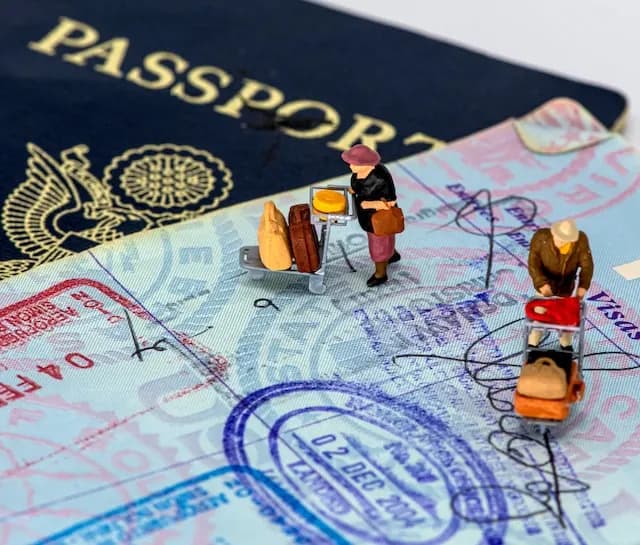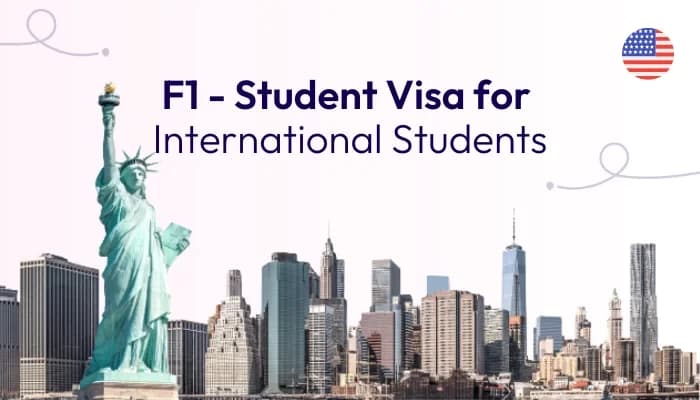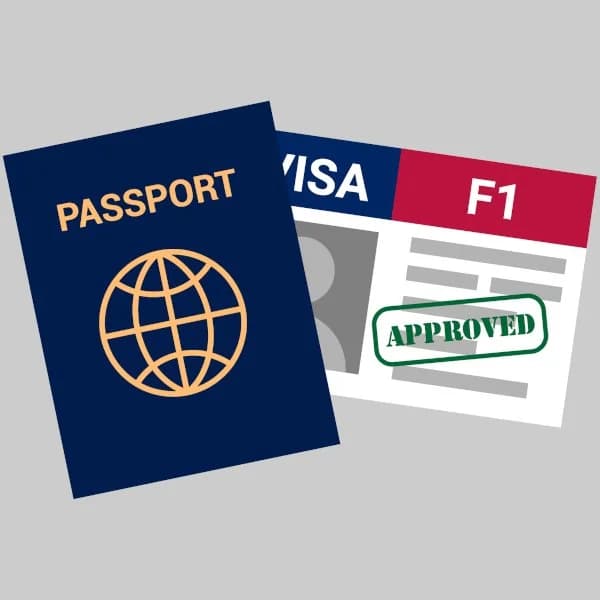F1 Visa: What are the challenges you might face in the US?

Key Highlights
- Identify potential challenges such as cultural differences, language barriers, homesickness, and academic pressures.
- Explain how you plan to overcome these challenges, demonstrating problem-solving skills and a proactive approach.
- Highlight your support system, including family, friends, or university resources.
- Showcase your adaptability and resilience with examples from past experiences.
- Demonstrate enthusiasm for learning and growth, emphasizing a positive attitude towards challenges.
Getting ready for your F1 visa interview? One common question you might face is about the challenges you could encounter in the US. This question aims to assess your preparedness and adaptability. In this comprehensive guide, we’ll break down how to answer this question effectively, step by step. We’ll also provide sample answers tailored for students from Nepal, India, and Ghana, so you can see how to apply these strategies to your own situation. So, grab a cup of coffee, and let’s get started!
Understanding the Question
When asked about the challenges you might face in the US, the interviewer wants to know if you are aware of the potential difficulties and if you have thought about how to overcome them. This question is an opportunity to show your resilience, problem-solving skills, and cultural awareness. Let’s dive into the steps to craft a compelling answer.
Step 1: Identify Potential Challenges
Start by identifying the main challenges you might face. These could include cultural differences, language barriers, homesickness, and academic pressures. Acknowledging these challenges shows that you are realistic and prepared for the experience ahead.
Example: “One of the main challenges I anticipate is adjusting to the cultural differences. Coming from Nepal, where community life is strong, I understand that the US values individualism and independence more. This shift might be challenging initially, but I am eager to embrace it as an opportunity for personal growth.”
Step 2: Explain How You Plan to Overcome These Challenges
Once you’ve identified the challenges, explain how you plan to tackle them. This demonstrates your problem-solving skills and proactive approach. Discuss specific strategies or actions you will take to manage these challenges.
Example: “To overcome cultural differences, I plan to engage in campus activities and join student organizations. This will help me meet new people and learn about different cultural norms. Additionally, I will attend orientation sessions and workshops that focus on cultural adaptation.”
Step 3: Highlight Your Support System
Having a support system is crucial for navigating challenges in a new country. Mention any family, friends, or university resources that will help you adjust. This shows that you have a network to rely on, which can be reassuring to the interviewer.
Example: “I have a cousin who has been studying in the US for a few years. She has shared her experiences and given me valuable tips on adjusting to American culture. Moreover, I will make use of the university’s counseling and support services to help with any difficulties I might face.”
Step 4: Showcase Your Adaptability and Resilience
Highlighting your adaptability and resilience can strengthen your answer. Provide examples from past experiences where you successfully adapted to new situations or overcame challenges. This reassures the interviewer of your ability to handle the transition to the US.
Example: “During my high school exchange program in Japan, I had to adapt to a completely different culture and language. Initially, it was tough, but I made friends and learned the language basics quickly. This experience taught me that I can adapt to new environments and handle cultural differences effectively.”
Step 5: Demonstrate Your Enthusiasm for Learning and Growth
Emphasize your eagerness to learn and grow from these challenges. This shows a positive attitude and a willingness to embrace the experience fully. Make it clear that you see these challenges as opportunities rather than obstacles.
Example: “I see studying in the US as a chance to broaden my horizons and grow both personally and academically. While I know there will be challenges, I am excited about the opportunities to learn new things and develop new skills. I believe these experiences will make me a more well-rounded individual.”
Sample Answers
For a Student from Nepal
Answer:
“One of the main challenges I anticipate is adjusting to the cultural differences in the US. Coming from Nepal, where community life is strong, I understand that the US values individualism and independence more. To overcome this, I plan to engage in campus activities and join student organizations to meet new people and learn about different cultural norms. Additionally, I have a cousin who has been studying in the US for a few years and has shared valuable tips on adjusting to American culture. I see this as an opportunity for personal growth and am excited to embrace it.”
Reasoning: This answer is effective because it shows the student’s awareness of potential cultural challenges and their proactive approach to overcoming them. Mentioning the support of a family member already in the US provides reassurance that they have guidance and support.
For a Student from India
Answer:
“Adjusting to the informal and egalitarian communication style in the US will be a significant change for me, coming from India where we value hierarchical respect. To bridge this gap, I will actively participate in classroom discussions and group projects to get comfortable with the informal communication style. I’ve also been practicing American customs like addressing professors by their first names, which is different from what I’m used to. Additionally, I have connected with current students at my university through social media who have shared their experiences and tips, making me feel more prepared for this transition.”
Reasoning: This answer effectively highlights the student’s understanding of specific cultural differences and their strategies to adapt. It also shows initiative and preparedness by connecting with current students, which demonstrates their proactive approach.
For a Student from Ghana
Answer:
“One challenge I anticipate is the shift from Ghana’s communal lifestyle to the US’s more individualistic culture. To manage this, I plan to immerse myself in campus life by joining multicultural student organizations and attending cultural exchange events. This will help me meet people from diverse backgrounds and learn more about American culture. I’ve also read extensively about American customs and norms, such as the importance of punctuality and direct communication, to ensure I adapt smoothly. Having friends who have studied in the US has also given me practical tips on adjusting to life there.”
Reasoning: This answer is compelling because it shows the student’s detailed preparation and proactive steps to immerse themselves in the new culture. It demonstrates a balanced approach of both self-study and leveraging the experiences of friends who have studied in the US.
Conclusion: Bringing It All Together
By following these steps, you’ll be able to answer the F1 visa interview question about the challenges you might face in the US with confidence and clarity. Remember, the key is to show that you’re prepared, open-minded, and enthusiastic about the cultural exchange. Your genuine interest in adapting to a new environment will shine through, leaving a positive impression on the interviewer.
In summary:
- Identify Potential Challenges: Show that you’re aware of the possible difficulties you might encounter.
- Explain How You Plan to Overcome These Challenges: Demonstrate your problem-solving skills and proactive approach.
- Highlight Your Support System: Reassure the interviewer that you have a network to rely on.
- Showcase Your Adaptability and Resilience: Provide examples of past experiences where you adapted successfully.
- Demonstrate Your Enthusiasm for Learning and Growth: Emphasize your positive attitude and eagerness to learn from these challenges.
What challenges do you think you might face, and how are you preparing to overcome them? Share your thoughts and experiences in the comments below!
Have Questions About This Topic?
Join our community to get personalized advice and share experiences with others going through similar visa processes.





